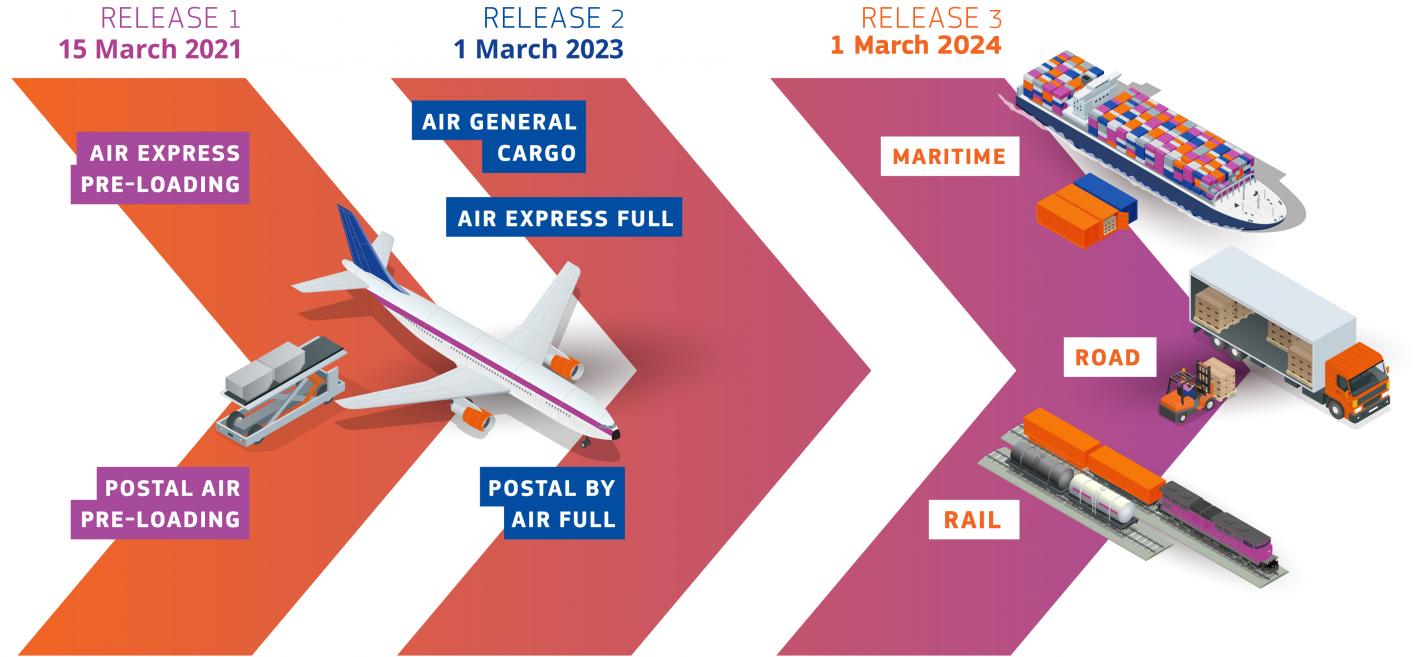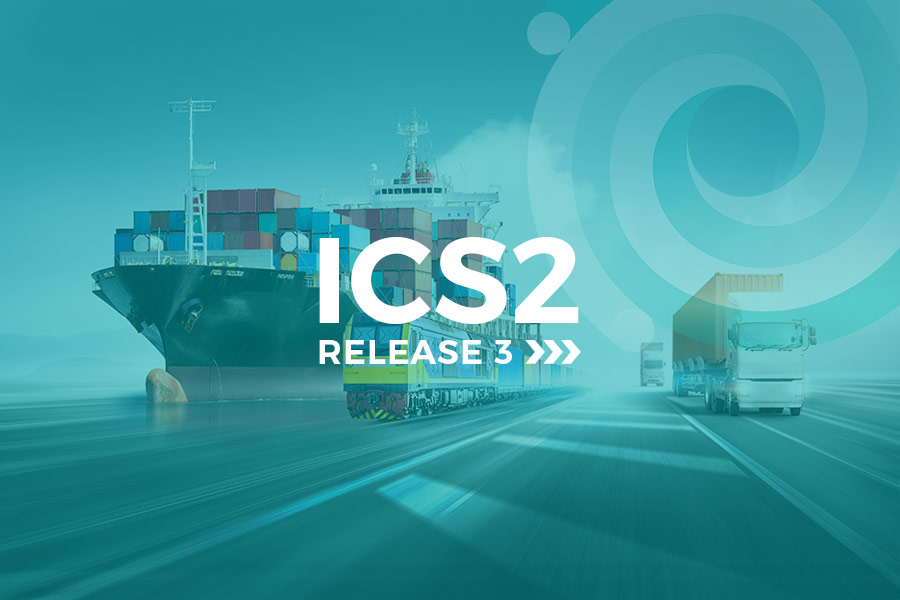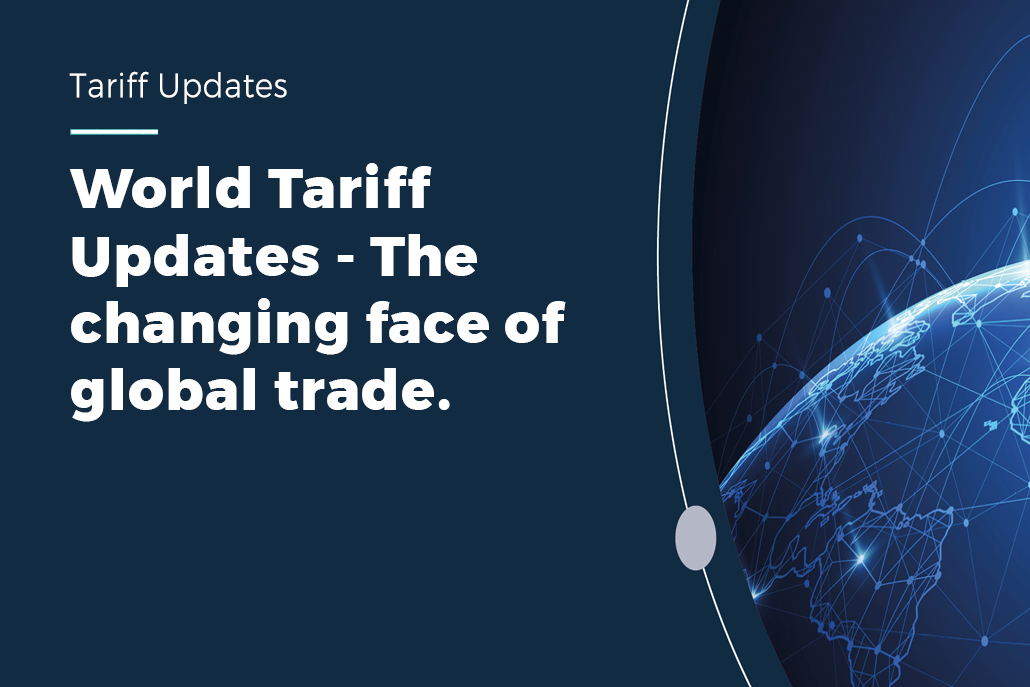In the ever-evolving landscape of global trade, staying ahead of regulatory changes is paramount. The upcoming release of the Import Control System 2 (ICS2) Release 3 is no exception, with its profound implications for businesses worldwide. In this comprehensive guide, we delve into the intricacies of ICS2 Release 3, exploring its key components and shedding light on how it will impact the maritime, road, and rail sectors.
Understanding ICS2: A Brief Overview
Before delving into the specifics of ICS2 Release 3, it’s crucial to understand the foundation upon which it is built. The Import Control System 2 (ICS2) is an integral component of the international trade regulatory framework. It is designed to facilitate the smooth flow of goods across borders, while ensuring security and compliance with safety, security, and customs regulations. ICS2 operates as an electronic pre-departure and pre-arrival information system, allowing customs authorities at the first point of entry into the European Union to receive and process essential data about incoming and outgoing shipments before they physically arrive or depart.

Read our ICS2 Second Release article for more of a detailed overview of ICS2, including its second release.
What Is ICS2 Release 3 and Why Is it Important?
Import Control System 2 (ICS2) is the next generation of EU customs pre-arrival security and safety. It requires the electronic submission of data regarding any shipments, prior to their arrival.
Release 3 is a pivotal update to the international trade regulatory framework, set to launch on June 3 2024. Unlike its predecessors, ICS2 Release 3 extends its view beyond the maritime and air cargo domains, now encompassing the road and rail sectors as well. This expansion reflects a more comprehensive approach to import control, acknowledging the diverse modes of transportation integral to global trade.
One of the primary objectives of the phase 3 rollout is to enhance the security and efficiency of cross-border movements by introducing refined processes and heightened data requirements.
Enhanced data requirements
At the core of ICS2 Release 3 is enhanced data requirements. Exporters will be obligated to furnish more intricate details about their shipments, including comprehensive information about the nature of the goods, their origin, destination, and other specific attributes. This meticulous data collection aims to fortify risk assessment capabilities, ensuring a more accurate evaluation of potential security and safety risks associated with incoming and outgoing shipments. The overarching goal is to elevate the overall security measures within the global trade ecosystem, aligning with the evolving challenges and threats in the contemporary landscape.
Streamlined processes
The release is not just an exercise in expanding regulations; it also introduces streamlined processes for data submission and customs clearance. By simplifying and optimising these processes, ICS2 Release 3 seeks to alleviate administrative burdens for exporters, advancing operational efficiency.
The emphasis on streamlined procedures is particularly crucial as it contributes to reducing delays and enhancing the overall agility of supply chains. This operational efficiency is a key factor that businesses need to consider as they prepare for the changes brought about by the upcoming release.
Improved risk management
ICS2 Release 3 incorporates advancements in risk management strategies. Leveraging technological innovations and data analytics, the system aims to identify and assess potential risks more precisely. This shift towards a more sophisticated risk-based approach enables customs authorities to prioritise inspections and interventions based on the perceived level of risk.
This targeted strategy not only enhances security measures but also contributes to the expeditious movement of low-risk shipments, promoting a more efficient and responsive customs clearance process.
Why Should I Care About ICS2 Release 3?
The importance of ICS2 Release 3 extends beyond compliance checkboxes; it is a strategic response to the dynamic nature of global trade. As businesses adapt to these changes, they position themselves to thrive in an environment where compliance, efficiency, and security are paramount.
Failure to engage with the requirements of ICS2 Release 3 may lead to penalties, delays, and disruptions, making it imperative for stakeholders to stay informed and proactively prepare for the imminent shift in the international trade landscape. In essence, ICS2 Release 3 is not just a regulatory update; it is a catalyst for positive change, leading in a new era of secure, efficient, and globally harmonised trade practices.
Key dates relevant to ICS2 release 3 are:
- From July 1 2023 – Connectivity testing (mandatory for economic operators)
- From 11 December 2023 – Functional testing (mandatory for economic operators)
- From 3 June 2024 – ICS2 Release 3 goes live
- 3 June 2024 – 1 September 2025 – Economic operators connect to ICS2 during dedicated deployment window
ICS2 Release 3 Requirements
To navigate the complexities of ICS2 Release 3, exporters must be well-acquainted with the new set of requirements. These requirements are designed to ensure that businesses comply with the latest standards and protocols, fostering a more secure and efficient global trade environment.
Detailed data submission
Exporters are obligated to provide comprehensive and detailed information about their shipments to the carrier for declaration. This includes specific details about the nature of the goods, their origin, destination, and other relevant attributes. The level of detail required exceeds previous standards, aiming to facilitate more accurate risk assessments and improve overall security.
Timely submission of data
Exporters must adhere to specified timelines for the submission of required data. Early submission ensures that customs authorities have sufficient time to assess the information, identify potential risks, and expedite the clearance process. Staying compliant with submission guidelines is critical to avoiding delays and disruptions, and it’s always best to submit this data sooner rather than later, in order to provide enough time to resolve any discrepancies and avoid any potential delays in the shipment.
Expanded scope to road and rail sectors
Exporters involved in the road and rail sectors are now included within the scope of ICS2 Release 3. This expansion means that businesses operating in these transportation modes must comply with the updated regulations, aligning their processes with the new requirements specific to road and rail shipments.
Adherence to risk management strategies
Exporters must align with the advanced risk management strategies introduced in ICS2 Release 3. This includes an understanding of the risk-based approach to inspections and interventions. Businesses should be prepared to provide additional information or undergo inspections based on the perceived level of risk associated with their shipments.
Comprehensive training and compliance
Exporters need to ensure that their staff are well-trained and informed about the new requirements outlined in ICS2 Release 3. Comprehensive compliance involves not only meeting the data submission criteria but also understanding the broader implications of the updated regulations on their day-to-day export operations.
Adaptation to changes
Businesses engaged in exports must be proactive in adapting their internal processes and systems to accommodate the changes brought about by ICS2 Release 3. This includes updating software systems, training personnel, and implementing measures to seamlessly integrate the new requirements into their export workflows.
How Can Hurricane Help?
Navigating the complexities of ICS2 Release 3 requires a partner with expertise and innovative solutions. Hurricane, with its core services like Kona, is well-positioned to assist exporters in achieving full ICS2 compliance. Whether it’s providing guidance on regulatory changes, streamlining data submission processes, or offering comprehensive support, Hurricane is committed to empowering businesses to thrive in the face of evolving global trade landscapes.
As the June 3 2024 release date approaches, businesses must proactively engage with the changes brought about by ICS2 Release 3. With the right knowledge and support, exporters can not only meet compliance requirements but also optimise their operations for sustained success in the dynamic world of international trade.
For more information on ICS2 Release 3, get in touch with Hurricane today.













